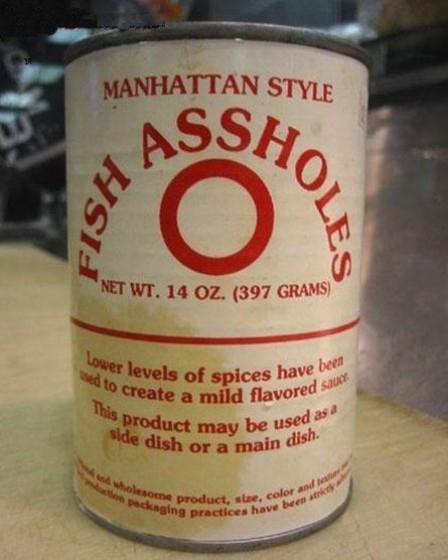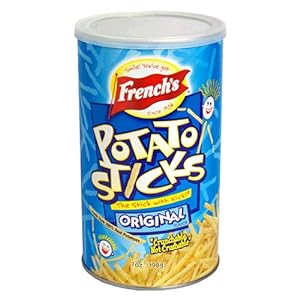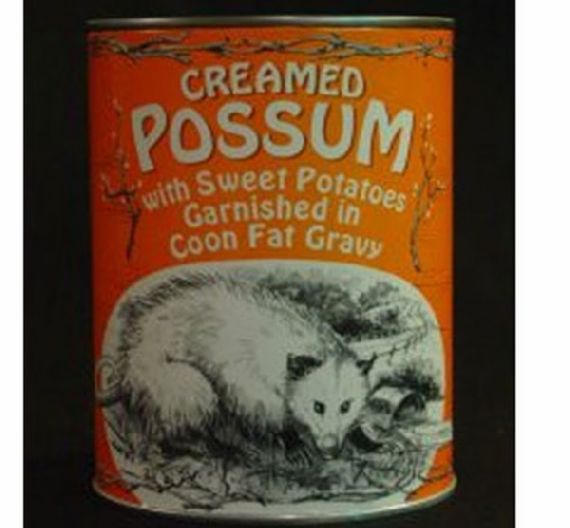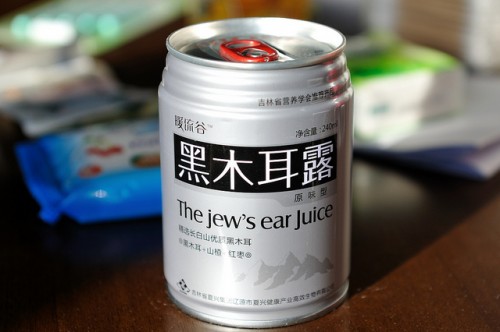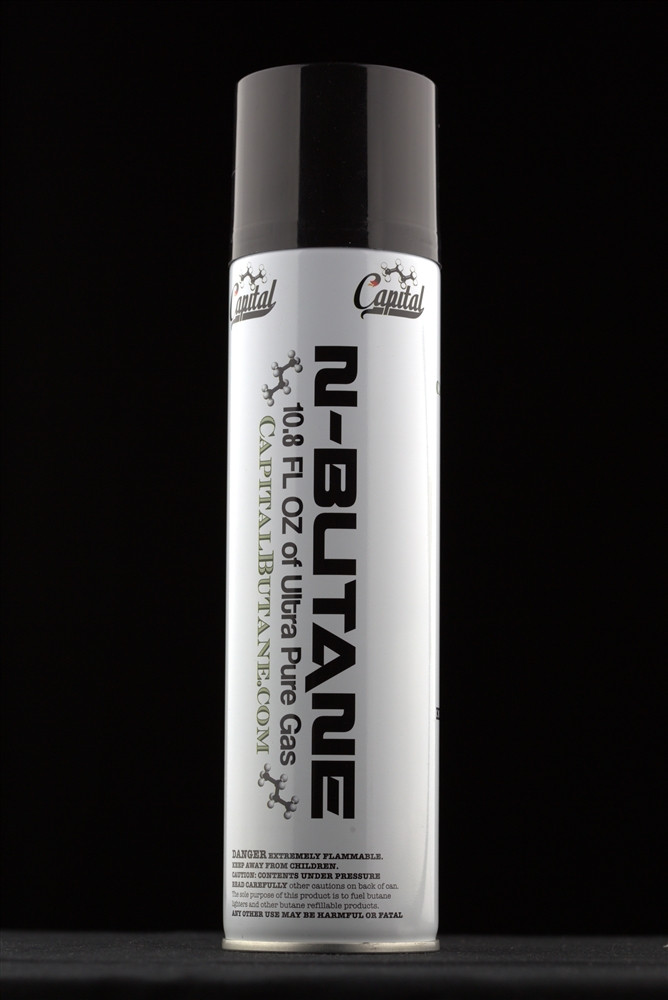-
SCAM WARNING! See how this scam works in Classifieds.
You are using an out of date browser. It may not display this or other websites correctly.
You should upgrade or use an alternative browser.
You should upgrade or use an alternative browser.
Things that come in cans . . .
- Thread starter t-dub
- Start date
p00pf4c3
Well-Known Member
t-dub
Vapor Sloth
No its a .50 cal ammo can. Boxes are made of paper or plastic. Here Cali, just for you. A "real can" complete with openers. Like better?IDK if that's really considered a can. Isn't the technical term "ammo box"?


lwien
Well-Known Member
So the difference between a box and can is the material and not the shape?
Is this a can or a box?:
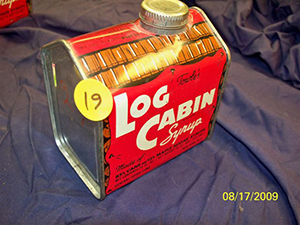
t-dub
Vapor Sloth
I would call that a can because its metal, holds liquid, and has a twist cap with a spout for pouring.Is this a can or a box?:

Caligula
Maximus
Main Entry: 2can
Pronunciation: \ˈkan\
Function: noun
Etymology: Middle Englishcanne, from Old English; akin to Old High German channa
Date: before 12th century
1 : a usually cylindrical receptacle: a : a vessel for holding liquids ; specifically : a drinking vessel b : a usually metal typically cylindrical receptacle usually with an open top, often with a removable cover, and sometimes with a spout or side handles (as for holding milk or trash)
Pronunciation: \ˈkan\
Function: noun
Etymology: Middle Englishcanne, from Old English; akin to Old High German channa
Date: before 12th century
1 : a usually cylindrical receptacle: a : a vessel for holding liquids ; specifically : a drinking vessel b : a usually metal typically cylindrical receptacle usually with an open top, often with a removable cover, and sometimes with a spout or side handles (as for holding milk or trash)
lwien
Well-Known Member
What about those automotive Oil "cans" from all the way back in the mid-late 20th century that were made of cardboard with a steel lid ?
They were still making them in the early 70's. (yup.......mid-late 20th century)
RUDE BOY
Space is the Place
Yeah I didn't start driving until '76 and with my first couple of vehicles(pure junkers) I used a lot of 'em.They were still making them in the early 70's. (yup.......mid-late 20th century)
tuk
Well-Known Member
Can, n.
Pronunciation: /kæn/
Forms: OE canne, (ME cane), ME–16 canne, kan, ME–15 kanne, 15–18 cann, 15– can.
Etymology: apparently Common Germanic: Old English canne < West Germanic kanna weak feminine (whence Middle Dutch kanne, Dutch kan, Old High German channa, Middle High German and German kanne); also Old Norse kanna (Swedish kanna, Danish kande) < Old Germanic type *kannôn-. The word occurs also in medieval Latin canna, apparently < Germanic. The Germanic origin of the word is questioned; but the form is not derivable < Latin cantharus pot, and Latin canna ‘reed, pipe’, does not suit the sense. (In Old English, only in a glossary, where it might be from Latin.)
a. A vessel for holding liquids; formerly used of vessels of various materials, shapes, and sizes, including drinking-vessels; now generally restricted to vessels of tin or other metal, mostly larger than a drinking-vessel, and usually cylindrical in form, with a handle over the top.
Earliest known usage:
a1000 in T. Wright & R. P. Wülcker Anglo-Saxon & Old Eng. Vocab. (1884) I. 122 Crater, uel canna, canne.
c1375 ? J. Barbour St. Laurentius 361 He brocht a vatir-cane & Laurens hyme baptist þane.
1388 Bible (Wycliffite, L.V.) John ii. 6 There weren set sixe stonun cannes [1382 pottis].
a1400 Cov. Myst. 259 (Mätz.) Beryng a kan with watyr.
c1485 Inventory in J. T. Fowler Acts Church SS. Peter & Wilfrid, Ripon (1875) 370 Duo kannes de ligno.
1535 Bible (Coverdale) Hosea iii. 1 They..loue the wyne kannes.
1562 J. Heywood Prov. & Epigr. (1867) 49 Mery we were as cup and can could holde.
1601 B. Jonson Every Man in his Humor ii. ii. sig. Ev, Two cans of beere.
1649 W. Blith Eng. Improver xxv. 165 The Buckets or Kans to take up thy Water.
1719 in T. D'Urfey Wit & Mirth III. 247 Now what do you say to the Canns of Wood?
1731 N. Bailey Universal Etymol. Eng. Dict., Cann, a wooden Pot to drink out of.
1755 Johnson Dict. Eng. Lang., Can, a cup; generally a cup made of metal, or some other matter than earth.
1800 Wordsworth Pet-lamb in Lyrical Ballads (ed. 2) II. 141, I have brought thee in this Can Fresh water from the brook.
1803 Scott Bonnie Dundee, Come fill up my cup, come fill up my can.
1838 Dickens Oliver Twist III. xliii. 154 The milk-can was standing by itself outside a public-house.
1842 Tennyson Will Waterproof's Monologue in Poems (new ed.) II. 190 The truth, that flies the flowing can, Will haunt the vacant cup.
Pronunciation: /kæn/
Forms: OE canne, (ME cane), ME–16 canne, kan, ME–15 kanne, 15–18 cann, 15– can.
Etymology: apparently Common Germanic: Old English canne < West Germanic kanna weak feminine (whence Middle Dutch kanne, Dutch kan, Old High German channa, Middle High German and German kanne); also Old Norse kanna (Swedish kanna, Danish kande) < Old Germanic type *kannôn-. The word occurs also in medieval Latin canna, apparently < Germanic. The Germanic origin of the word is questioned; but the form is not derivable < Latin cantharus pot, and Latin canna ‘reed, pipe’, does not suit the sense. (In Old English, only in a glossary, where it might be from Latin.)
a. A vessel for holding liquids; formerly used of vessels of various materials, shapes, and sizes, including drinking-vessels; now generally restricted to vessels of tin or other metal, mostly larger than a drinking-vessel, and usually cylindrical in form, with a handle over the top.
Earliest known usage:
a1000 in T. Wright & R. P. Wülcker Anglo-Saxon & Old Eng. Vocab. (1884) I. 122 Crater, uel canna, canne.
c1375 ? J. Barbour St. Laurentius 361 He brocht a vatir-cane & Laurens hyme baptist þane.
1388 Bible (Wycliffite, L.V.) John ii. 6 There weren set sixe stonun cannes [1382 pottis].
a1400 Cov. Myst. 259 (Mätz.) Beryng a kan with watyr.
c1485 Inventory in J. T. Fowler Acts Church SS. Peter & Wilfrid, Ripon (1875) 370 Duo kannes de ligno.
1535 Bible (Coverdale) Hosea iii. 1 They..loue the wyne kannes.
1562 J. Heywood Prov. & Epigr. (1867) 49 Mery we were as cup and can could holde.
1601 B. Jonson Every Man in his Humor ii. ii. sig. Ev, Two cans of beere.
1649 W. Blith Eng. Improver xxv. 165 The Buckets or Kans to take up thy Water.
1719 in T. D'Urfey Wit & Mirth III. 247 Now what do you say to the Canns of Wood?
1731 N. Bailey Universal Etymol. Eng. Dict., Cann, a wooden Pot to drink out of.
1755 Johnson Dict. Eng. Lang., Can, a cup; generally a cup made of metal, or some other matter than earth.
1800 Wordsworth Pet-lamb in Lyrical Ballads (ed. 2) II. 141, I have brought thee in this Can Fresh water from the brook.
1803 Scott Bonnie Dundee, Come fill up my cup, come fill up my can.
1838 Dickens Oliver Twist III. xliii. 154 The milk-can was standing by itself outside a public-house.
1842 Tennyson Will Waterproof's Monologue in Poems (new ed.) II. 190 The truth, that flies the flowing can, Will haunt the vacant cup.
nopartofme
Over the falls, in a barrel
EveryDayAmnesiac
Well-Known Member
Red Balls Energy Drink.
MichaelAB
Active Member
...typically cylindrical receptacle...
...generally restricted to vessels of tin or other metal, mostly larger than a drinking-vessel, and usually cylindrical in form, with a handle over the top...
Note in both cases the words "typically," "generally," and "usually." Use and context is important.
"Ammo-can" is generally the typical term used in my neck of the woods. Usually.
 Google likes both, it seems.
Google likes both, it seems. We can't forget about this one!

Last edited:
Caligula
Maximus
At least its not the Jew's nose juice?



